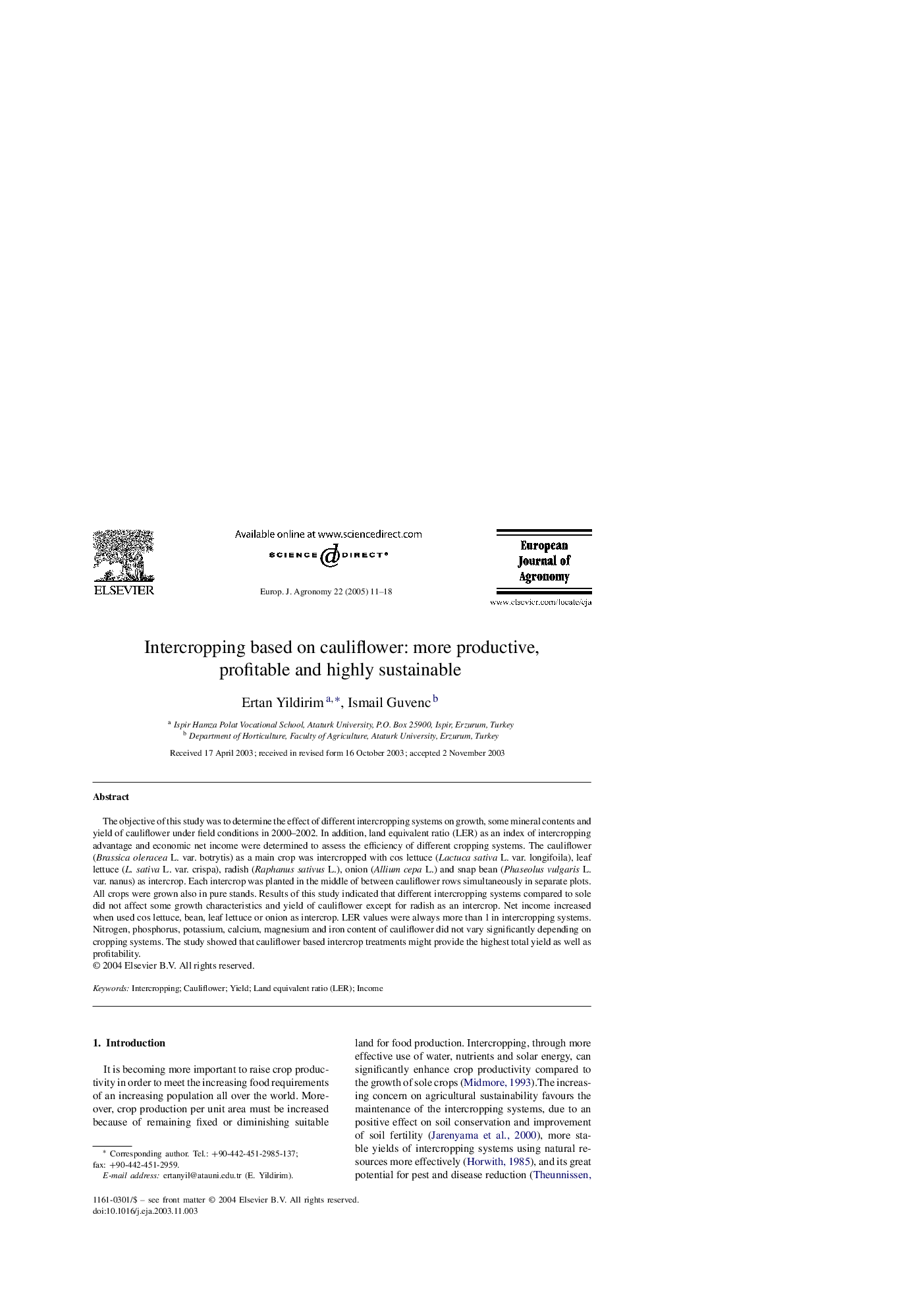| Article ID | Journal | Published Year | Pages | File Type |
|---|---|---|---|---|
| 10116664 | European Journal of Agronomy | 2005 | 8 Pages |
Abstract
The objective of this study was to determine the effect of different intercropping systems on growth, some mineral contents and yield of cauliflower under field conditions in 2000-2002. In addition, land equivalent ratio (LER) as an index of intercropping advantage and economic net income were determined to assess the efficiency of different cropping systems. The cauliflower (Brassica oleracea L. var. botrytis) as a main crop was intercropped with cos lettuce (Lactuca sativa L. var. longifoila), leaf lettuce (L. sativa L. var. crispa), radish (Raphanus sativus L.), onion (Allium cepa L.) and snap bean (Phaseolus vulgaris L. var. nanus) as intercrop. Each intercrop was planted in the middle of between cauliflower rows simultaneously in separate plots. All crops were grown also in pure stands. Results of this study indicated that different intercropping systems compared to sole did not affect some growth characteristics and yield of cauliflower except for radish as an intercrop. Net income increased when used cos lettuce, bean, leaf lettuce or onion as intercrop. LER values were always more than 1Â in intercropping systems. Nitrogen, phosphorus, potassium, calcium, magnesium and iron content of cauliflower did not vary significantly depending on cropping systems. The study showed that cauliflower based intercrop treatments might provide the highest total yield as well as profitability.
Related Topics
Life Sciences
Agricultural and Biological Sciences
Agronomy and Crop Science
Authors
Ertan Yildirim, Ismail Guvenc,
